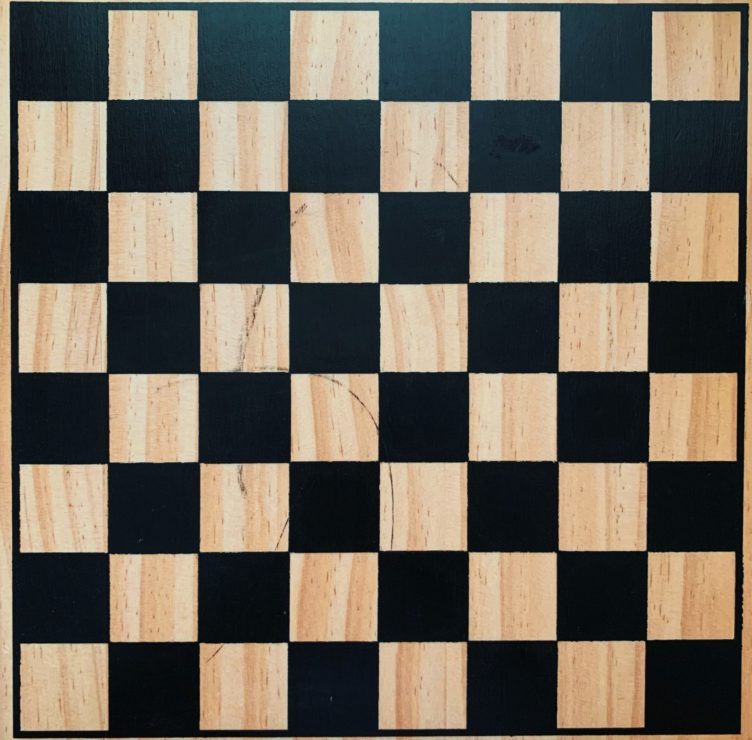Happy November, and welcome to blog number 3!
Thanks for your responses to the October “Too Smart to be Scammed?” blog, including your own stories of people you know who sadly have been scammed. On a positive note, some recognition of the problem came in October through a federal budget allocation to combat scams and online fraud. May it get the attention it needs.
Now onto this month’s topic. I had a podcast interview in October, where I was asked, ‘What is the most powerful force in the universe? Knowing it was a finance podcast, I responded with ‘compounding’ (Einstein supposedly said it was the most powerful force in the universe)
Compounding is much celebrated and is even referred to as magic. The challenge, however, is that its power is simply not intuitive.
To illustrate its power, I’ll relay a story covered in MISSION: PO$$IBLE.
The tale concerns a loyal servant responsible for caring for the king’s only son. One day, the servant saves the young prince’s life. The king, enormously grateful, offers the servant anything he desires. Keen to escape a life of servitude but wary about the king’s sincerity, the servant asks for a chessboard and some wheat. He then requests that a single grain of wheat be placed on the first square, then double the number of grains on each subsequent square: two on the second, four on the third, eight on the fourth, and so on. His reward is the amount of wheat that will eventually cover the chessboard when the exercise is completed. The king quickly agrees, pitying his simple servant for his poor choice.
The servant receives an eight-by-eight square chessboard and a large wheat bag that the king says will cover the reward. However, before walking away, the servant insists that the grain be laid out as requested so that the amount can be checked. The king laughs but agrees.
By the end of the first row of the chessboard, the king is still chuckling as his other servants place 128 grains on the eighth square. By the end of the second row, however, the king’s chuckle turns to a nervous smile. By the third row, a grimace. At some point on the fourth row, the king realises there won’t be enough wheat grains in his kingdom to meet the servant’s request. He realises his own servant has outwitted him.
Here are the numbers:
- The 64th square requires 9,223,372,036,854,775,808 (9223 quadrillion) grains of wheat.
- The entire chessboard requires 18,446,744,073,709,551,615 grains of wheat.
- Amazingly, the final 64th square contains more than 2 billion times as many grains as the first half of the chessboard.
The power of compounding is not intuitive – few people would have the insight to make the chessboard-and-wheat request to the king. We are likelier to be the king, laughing at his servant, fooled by the power of compounding.
So, what’s the relevance of this story to our own lives? The implications are that few people have used compounding to their advantage, and most have been disadvantaged by it.
Here are two common ways people are disadvantaged by it, using some round figures:
- A $10 meal today will cost just over $70 in 40 years at a steady 5% inflation rate.
- A $1mil principal and interest loan at 5% over 30 years, paid monthly, will cost $932,558 in interest, almost the original borrowed amount. This also means the extra $50,000 someone pays to win at auction costs almost $100,000 after interest and stamp duty!
If that’s compounding working against us, how do we make it work for us? The answer is simple but not necessarily easy: drip-feed money into suitable investments for as long as possible.
Imagine that each square represents a year of investing, and the 64 squares represent a lifetime of investing, from age 20 to age 84 (the approximate life expectancy in Australia). And instead of putting a grain of wheat on a chessboard and doubling it (a return of 100%), a person allocated $1000 yearly to investing well. The result is that they, too, would experience the power of compounding. Their $1000, invested annually (a total of $64,000) at a 7% return, would lead to just under $1.15 million.
If that seems too hard, here is the kicker, most Australians are already putting the magic of compounding into place through their super. Currently, 10.5% of salary (legislated to increase to 12%) is being drip-fed and put to work each year.
To help you stay on track with super, it’s helpful to know that compounding (and therefore super) is guaranteed to feel underwhelming for a long time! Just as the single grain of wheat on the first chessboard square and the 128 grains on the eighth square didn’t look like much to the king, your first year is guaranteed to feel insignificant. So, too, will your 8th, 16th and even 24th years. This is important to remember when you feel frustrated with how small the amount seems.
Of course, everyone starts and finishes investing at different ages, and we must deal with our circumstances as best we can, but as the saying goes, the best time to plant an oak tree was 20 years ago. The second-best time is now. Also long-term investing and compounding are only one of many levers you can draw on when it comes to your financial independence pathway.
In the meantime, whenever you think of ‘boring’ super, remember it is helping you access the ‘most powerful force in the universe!
All the best for November and sticking to the path. The mission is absolutely possible. Best, David
P.S. Next time you get out some wheat or rice, perhaps seek out an old chess or checkerboard and start putting one grain on the first, two on the second, four on the third …
P.P.S. On the topic of super, here’s a timely reminder that super fund’s annual member meetings are generally kicking off around now, so if you haven’t seen your invite go onto your fund’s website and sign up. I know there are far more exciting things to do! However, it’s only once a year for about an hour and it will cover lots.




